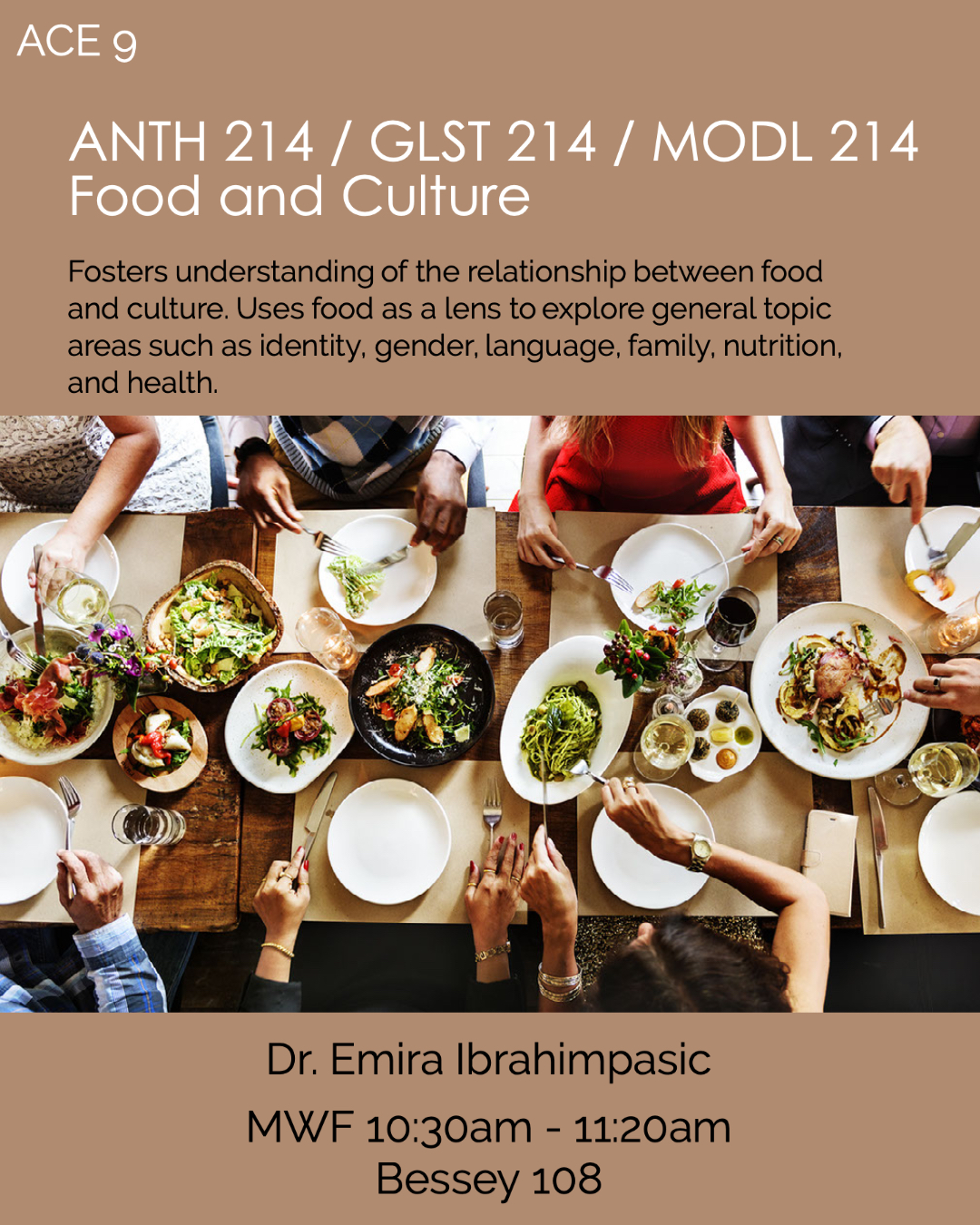
Food is an essential part of human experience. From childhood on, social interactions, whether within the family or with other groups, provide the context within which the majority of food experiences occur, and as such is an expression of our cultural identity. Food has a rich cultural significance in people’s lives and our food choices and behaviors are influenced not only by our geography, environment, ethnicity, and nationality, but also our preferences, tastes, rituals, traditions, gender, language and class. In addition, economic and environmental factors, globalization, localization, and social movements all affect our access and attitudes toward food.
In this course, we will examine how food behaviors are shaped by culture, and what anthropology, as well other disciplines can offer to the study of food through a cross-cultural perspective. Food holds scholarly (both disciplinary and interdisciplinary) and personal interest because through eating, humans incorporate into their very bodies the products of nature transformed into culture. This course explores connections between what we eat and who we are through cross-cultural study of how personal identities and social groups are formed via food production, preparation, and consumption. Special attention will be drawn to local intersections of food and culture, with a special focus on historical and modern (im)migrant and refugee experiences right here in Nebraska.